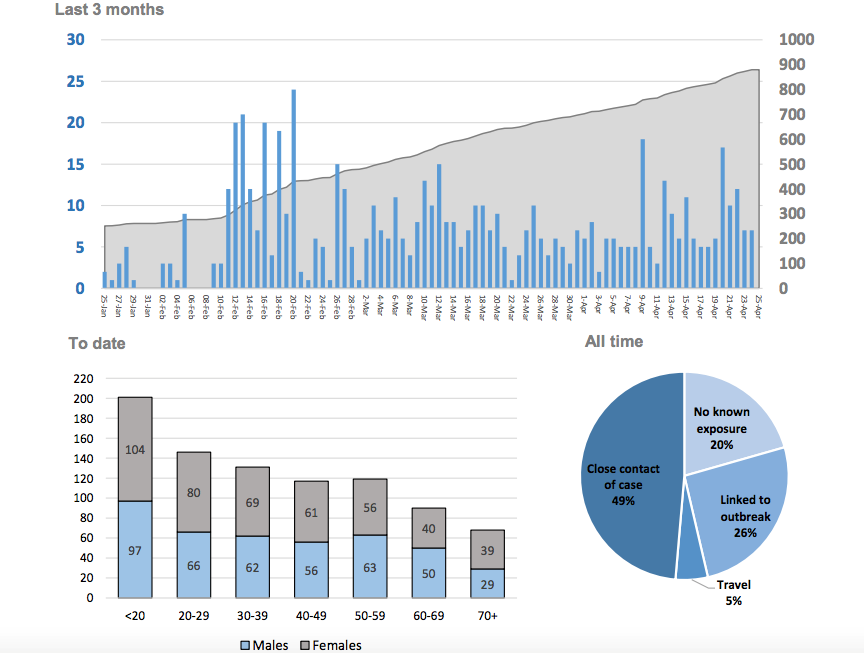DRYDEN, Ont. - The Northwestern Health Unit reached a grim milestone in the pandemic with 1 in 100 individuals having tested positive for COVID-19 and cases continue to climb largely due to workplace outbreaks and people not following public health guidelines.
“In reviewing all of our cases to date in the pandemic, we have noted that overall 1 in every 100 people in our catchment area have had COVID-19,” said Dr. Kit Young Hoon, medical officer of Health with the NWHU. “This is a significant statistic. 1 in 100 is not a small likelihood. It means there is a substantial risk in our region.”
On Friday, the NWHU reported 11 new COVID-19 cases, with six in the Fort Frances region, three in the Kenora region, one in the Dryden region, and one in the Sioux Lookout region.
This brings the total number of active cases to 71 and all major regions now have at least one active case, with Kenora accounting for 31 and Fort Frances at 19.
To date, there have been 927 positive COVID-19 cases in the catchment area. Three people are currently in hospital. Since the start of the pandemic 65 people have been admitted to hospital and seven others have died.
The NWHU has also reported that more than 40 COVID-19 cases have screened positive for a variant of concern. Young Hoon said people from outside of the region coming to work have introduced variant cases but it has also spread within communities.
“We were seeing that trend. We are probably still seeing it to some extent,” she said. “But we are seeing cases of the variants that are not related to travel. Based on our statistics, I think the variants of concern are in a number of our communities in the catchment area.”
There are also several workplace outbreaks reported as of Friday, including at the New Gold Mine and No Frills in Kenora.
According to Kit Young Hoon, the rise in cases is due in large part to people not self-isolating when exhibiting symptoms of COVID-19 and in some cases continuing to go to work. Since the pandemic began, 49 per cent of positive cases were the result of close contact, while 26 per cent have been linked to a known outbreak.
“I think that is definitely could be a factor that could be contributing to that problem,” she said. “We are asking people stay home when they are sick and employers to support employees with paid sick leave so they can stay home when they are sick.”
“I know it doesn’t apply to every single case. It is a trend we are seeing that spread is partially driven or mainly driven by people who are not self-isolating when they could be sick with COVID-19 and awaiting their test results.”
Booking a test can take between one and two days, while results may take another two to five days, which Young Hoon acknowledges can put workers in a difficult position.
“Particularly if they are at a job that does not pay well enough to carry income over from pay period to pay period,” she said. “We are wanting employers to support employees to stay home when they have symptoms of COVID-19 and not lead to financial barriers to be able to do so.”
Young Hoon added that this is a problem in the entire catchment area but if employers do not support workers remaining at home to self-isolate if showing symptoms, it will only prolong public health restrictions.
“All these things are detrimental to all of us,” she said. “In order to come out of this situation, it’s important to stop the spread of COVID-19. That is where the role of the employer is important and supporting the employees.”
The NWHU issued a Section 22 order under the Health Protection and Promotion Act in February in an effort to ensure people continue to self-isolate if they are a high-risk COVID-19 contact.
“If an individual is not self isolating appropriately, if they have symptoms, there are different categories,” Young Hoon said.
“It particularly applies to people diagnosed with COVID-19 and high-risk contacts of COVID-19 and people who have symptoms and are awaiting test results. For those individuals, the Section 22 does apply and we can issue a ticket that has a minimum value of 750.”
Vaccines continue to roll out in the Northwest. A total of 27,411 doses have been administered and the NWHU lowered the age of eligibility to 55 and over on Friday in accordance with the province’s vaccine rollout.
